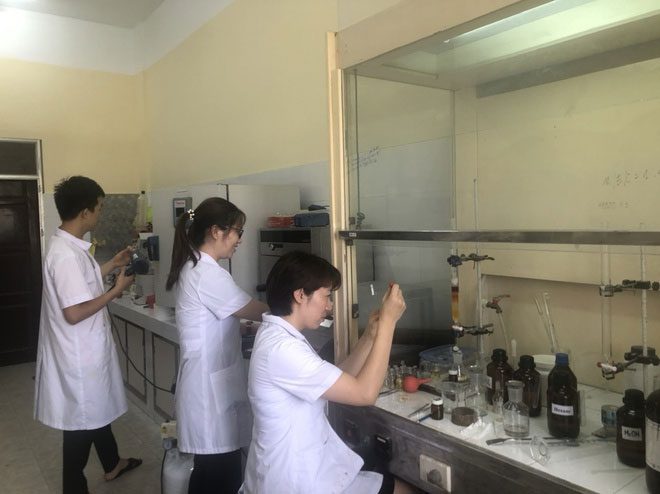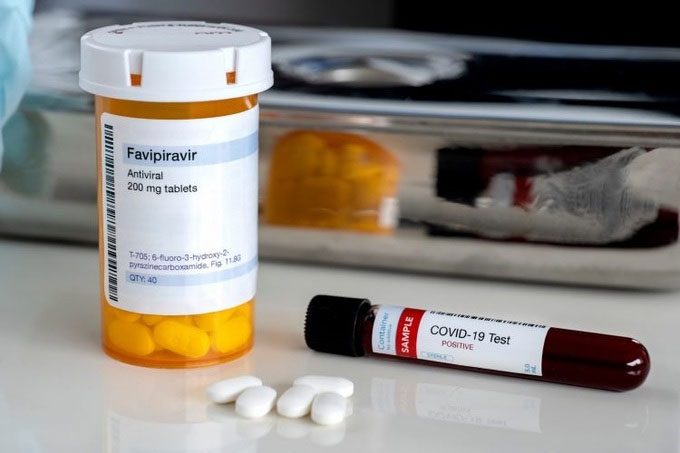The research team at the Institute of Chemistry has discovered a method to shorten the synthesis process of the drug Favipiravir, used to combat nCoV.
Favipiravir is a drug that operates similarly to Remdesivir, administered orally. Remdesivir was first used against nCoV in Wuhan (China), and later approved for use in Japan, Russia, and several other countries.

Research team at the Institute of Chemistry. (Photo: VAST).
Global research publications indicate that the synthesis of this drug typically requires 7-8 reaction steps. However, the research team from the Institute of Chemistry, Vietnam Academy of Science and Technology has initially improved and shortened the synthesis process to just three reaction steps, using locally available raw materials. As a result, the product cost is lower, making it suitable for production conditions in Vietnam.
The research has been conducted since August 2020 to reduce dependence on imported medications. “In the coming time, the team will continue to refine and stabilize the process, scale up the synthesis process, and plans to register a patent,” said Professor Dr. Nguyen Van Tuyen, Director of the Institute of Chemistry.

Favipiravir is taken orally and is effective in treating Covid-19 in phase 3. (Photo: Europeanpharmal).
Favipiravir is currently undergoing clinical trials worldwide for the treatment of Covid-19 up to phase 3, showing an effectiveness of up to 97%. The drug has three phases of clinical trials, with phase 3 testing on the largest group of patients (300 – 3,000 or more depending on the disease/medical condition being studied) to accurately assess the drug’s efficacy and safety.
This medication is indicated for mild or moderate cases to prevent the disease from progressing to severe stages, helping patients recover faster and reducing the treatment burden by shortening hospital stays. The drug aids in the early elimination of the virus to limit community transmission.
Favipiravir is an antiviral drug that has been approved in Japan since 2014 for the treatment of influenza. Favipiravir acts as a prodrug; when ingested, it generates a compound called T-705-RPT. This T-705-RPT compound interacts with the virus’s RNA, preventing it from replicating, leading to reduced viral load and elimination from the body.



















































